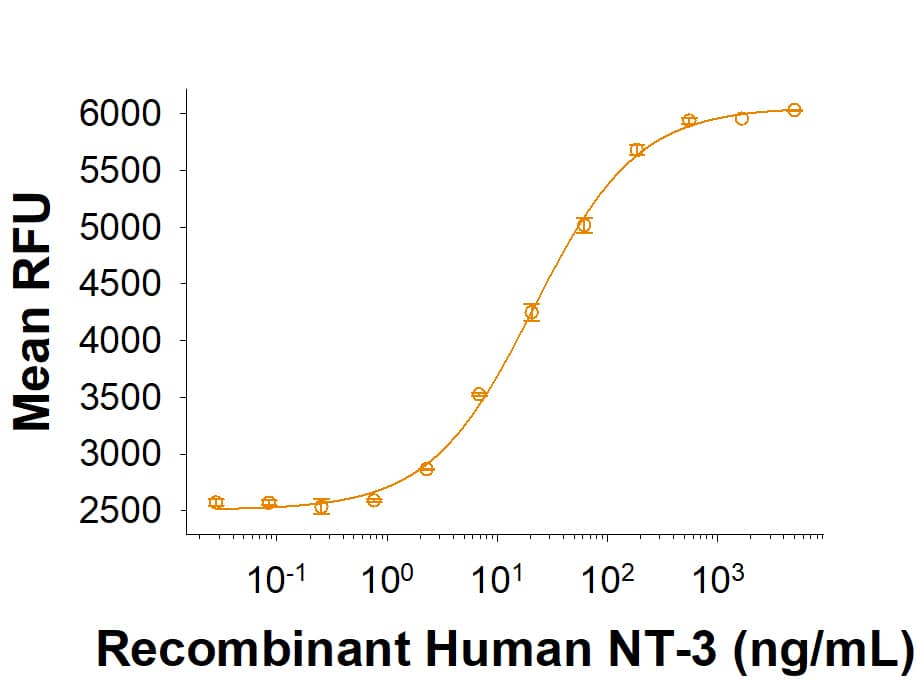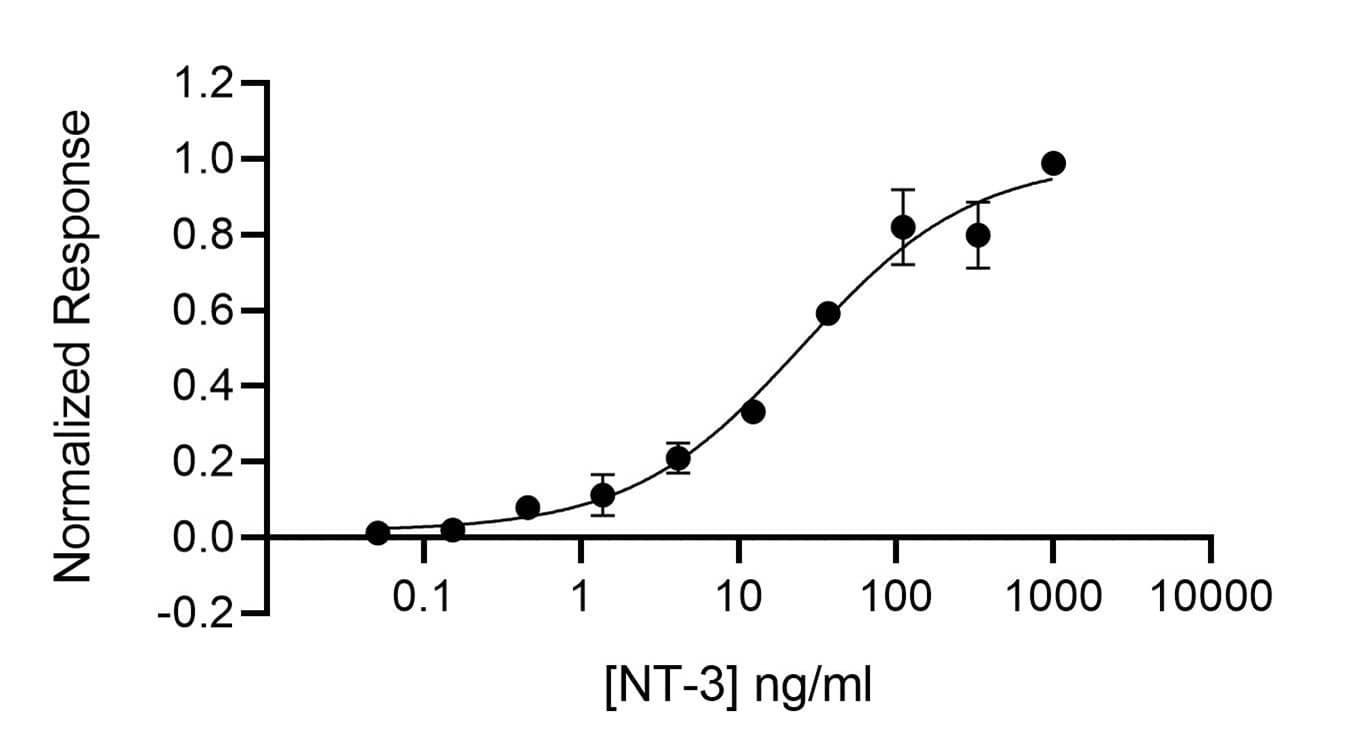NT-3: Proteins and Enzymes
Neurotrophin-3 (NT-3) is a member of the NGF family of neurotrophic factors (also named neurotrophins) that are required for the differentiation and survival of specific neuronal subpopulations in both the central as well as the peripheral nervous systems. The neurotrophin family is comprised of at least four proteins including NGF, BDNF, NT-3, and NT-4/5. These secreted cytokines are synthesized as prepropeptides that are proteolytically processed to generate the mature proteins. All neurotrophins have six conserved cysteine residues that are involved in the formation of three disulfide bonds and all share approximately 55% sequence identity at the amino acid level. Similarly to NGF, bioactive NT-3 is predicted to be a noncovalently linked homodimer.
Human NT-3 cDNA encodes a 257 amino acid residue precursor protein with a signal peptide and a proprotein that are cleaved to yield the 119 amino acid residue mature NT-3. The amino acid sequence of mature NT-3 is identical in human, mouse, and rat. NT-3 transcripts have been detected in the cerebellum, hippocampus, placenta, heart, skin, and skeletal muscle. NT-3 primarily activates the TrkC tyrosine kinase receptor. In addition, NT-3 can activate Trk and TrkB kinase receptors in certain cell systems. NT-3 can also bind with low affinity to the low affinity NGF receptor.
3 results for "NT-3 Proteins and Enzymes" in Products
3 results for "NT-3 Proteins and Enzymes" in Products
NT-3: Proteins and Enzymes
Neurotrophin-3 (NT-3) is a member of the NGF family of neurotrophic factors (also named neurotrophins) that are required for the differentiation and survival of specific neuronal subpopulations in both the central as well as the peripheral nervous systems. The neurotrophin family is comprised of at least four proteins including NGF, BDNF, NT-3, and NT-4/5. These secreted cytokines are synthesized as prepropeptides that are proteolytically processed to generate the mature proteins. All neurotrophins have six conserved cysteine residues that are involved in the formation of three disulfide bonds and all share approximately 55% sequence identity at the amino acid level. Similarly to NGF, bioactive NT-3 is predicted to be a noncovalently linked homodimer.
Human NT-3 cDNA encodes a 257 amino acid residue precursor protein with a signal peptide and a proprotein that are cleaved to yield the 119 amino acid residue mature NT-3. The amino acid sequence of mature NT-3 is identical in human, mouse, and rat. NT-3 transcripts have been detected in the cerebellum, hippocampus, placenta, heart, skin, and skeletal muscle. NT-3 primarily activates the TrkC tyrosine kinase receptor. In addition, NT-3 can activate Trk and TrkB kinase receptors in certain cell systems. NT-3 can also bind with low affinity to the low affinity NGF receptor.
11563-N3, a new product from mammalian cell line is available
(CHO expressed)
| Source: | CHO |
| Accession #: | P20783.1 |
| Applications: | BA |
Human/Mouse/Rat/Porcine
| Source: | E. coli |
| Accession #: | P20783.1 |
| Applications: | BA |



